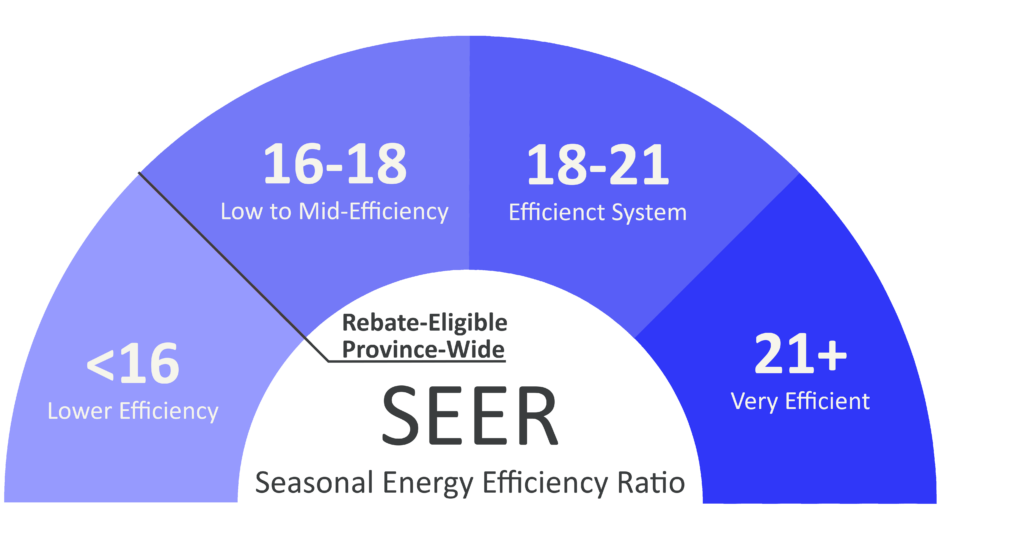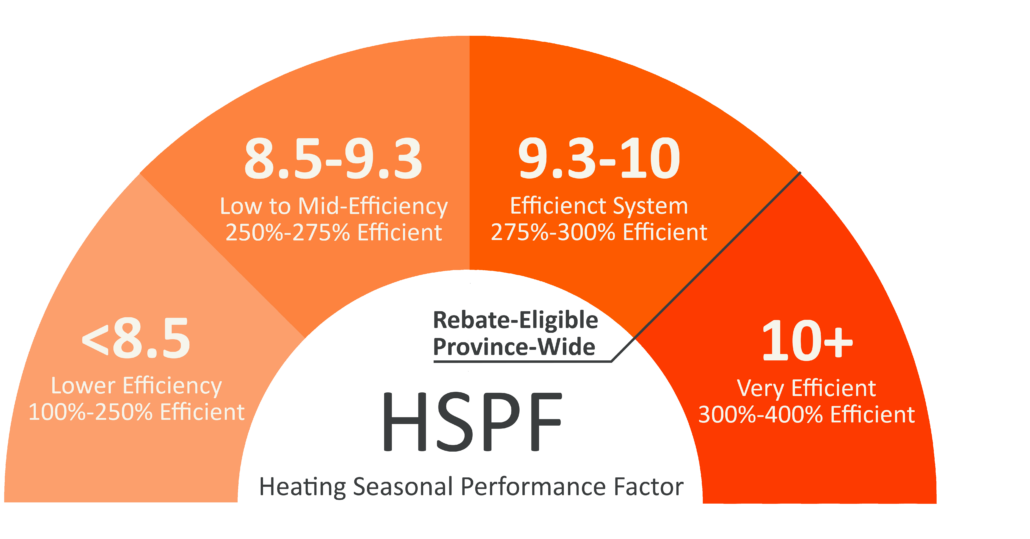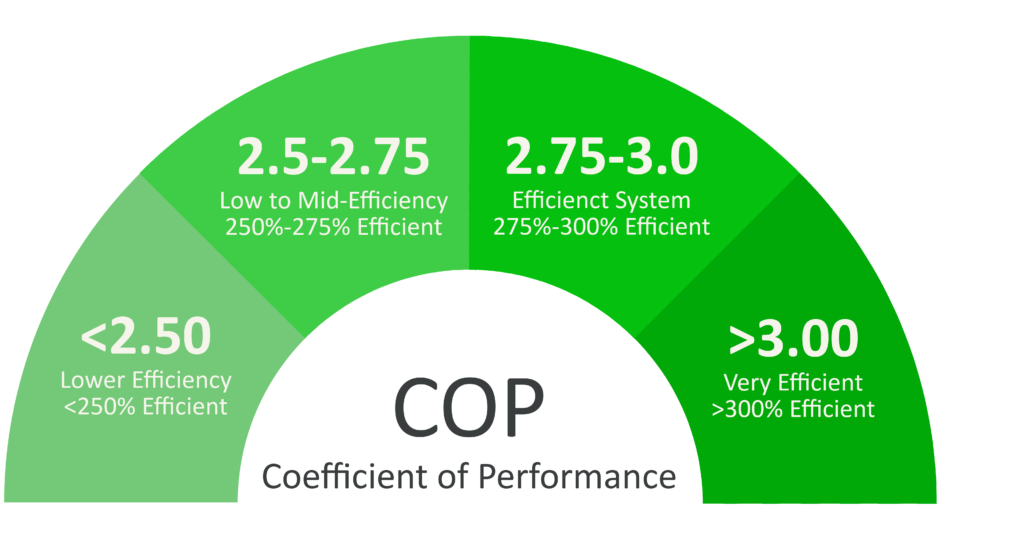Need help navigating retrofits?
Register for free today!
What to Ask Your Heat Pump Contractor
Deciding to install a heat pump is a great first step in reducing both your carbon footprint and your monthly hydro bill. Before jumping into upgrades however, you should first talk to a registered contractor with experience in heat pump installations. Prior to meeting with your contractor, there are a couple important things to know so you can ask the right questions and make the best decision for you.
Verify Qualifications & Training
Determining if your contractor is the best fit for your desired installation type is the first step in ensuring that you are getting the best possible service. Before signing on with a specific contractor or HVAC company, ask some of these questions:
- Are you a Home Performance Contractor Network Member with additional heat pump installation best practice and building science training?
- What is the history of your company?
- Do you carry Workers’ Compensation and insurance?
- What is your training on the type of heat pump you plan to install?
- Do you regularly install heat pumps similar to ours?
- Do you have a GST number and a valid B.C. business license related to heating upgrades?
- What kind of warranty do you offer and what does it cover?
- Can we speak to any of your past clients?
- Will we receive a written contract?
State Your Goals & Motivations
Stating your goals and motivations early in the process helps set expectations around equipment and outcomes.
Tell your contractor what your goals for the home are, such as making it more comfortable, healthier & safer, quieter, more affordable to operate, or more climate-friendly.
Tell your contractor about issues such as:
- Energy bills are too high
- Areas of the home are too cold in the winter
- Areas of the home are too warm in the summer
- Air quality is a concern due to allergies, humidity, odours, wildfire smoke, etc.
- Your current heating system’s age
- How loud your current heating system is when operating
Shopping for Quotes
It is recommended that you obtain at least three estimates from different contractors in order to ensure that you are receiving the most accurate estimates.
When meeting with each contractor, be sure to ask them the same set of questions – detailing both the description of the job and any specifications you have for equipment or materials. Ask some of these questions to get a better picture of the quality of service and what the project will mean for both you and your home:
- What is your timeline for completion?
- Will I have a dedicated team working on my job?
- What does a typical working day look like on a project of my scope?
- How will clean up be handled at the end of each day? At the end of the job?
- What steps will you take to protect my property from damage during the project?
- What does your payment structure look like?
- How will additional charges be handled if need be?
- How will disagreements during the project be resolved?
Understand Your Options
Navigating what heat pump system is best for your home can be overwhelming. Discuss your options with your contractor prior to starting work on your home.
To get started, here are a few questions to help assess your contractor’s knowledge and get better insight into what you will need to comfortably heat and cool your home:
- Would you recommend a ducted or ductless system for my home? Where would the ideal locations for indoor heads be in my home?
- What size heat pump would you recommend for my home?
- Will you complete a heat load calculation to determine the correct size for my home?
- Would you recommend a backup heating system for my home? If yes, why?
Ask your contractor to provide AHRI numbers for each proposed system so you can do further research before making your purchase. Vital information on how your system’s components will perform can be found using its AHRI number.
Understand Heat Pump Noise
The noise a heat pump makes is measured by its Decibel rating. A typical indoor unit is 18-30 dB and a modern outdoor unit is 60 dB with ultra-quiet options achieving lower ratings. Check how these ratings measure up to common noises from your day-to-day life:
| Sound | Noise Rating (decibels) |
|---|---|
| Normal breathing | 10dB |
| Whispering | 20dB |
| Quiet office or library | 40dB |
| Computer | 35-45dB |
| Washing machine | 50-75dB |
| Retrigerator | 50dB |
| Normal conversation | 55-65dB |
| Street traffic | 70dB |
| Toilet flushing | 75-85dB |
| Telephone ring | 80dB |
| Circular saw | 100-105dB |
Understand Heat Pump Ratings
Your Heat Pump quote may contain some important technical information regarding it’s efficiency. Understanding these ratings can help you make an informed choice on your system.
The SEER rating is the heat pump’s cooling efficiency:

The HSPF rating is the heat pump’s heating efficiency:

The COP rating is how efficiently the heat pump moves heat in or out of your home at the stated temperature (usually 0 or -15 degrees Celsuis). For example, a COP of 3.0 means 1 unit of electrical energy moves 3 units of heat energy.

Selecting a Quote
After meeting with your contractor(s), there are a few things to consider before making your final decision:
- Compare your bids and proposals carefully to ensure that everything you asked for is in the estimate. Always assume that anything not listed in the proposal is not included in the price given.
- Do not automatically choose the contractor who gives you the lowest bid. Estimates that are significantly lower than their competitors may indicate that the contractor misunderstood the scope of the project. They may have also lowered costs by substituting lower quality materials or by having a lower quality installation of the product.
- Get in touch with each of the contractor’s references and check their Better Business Bureau rating to help you make an informed decision. This will help you get a better sense of a contractor’s work performance and quality of materials used.
Use the included quote planning chart to help organize and compare or consider accessing a quote comparison service through the Home Energy Navigator Program at HomeEnergyNav.ca.
Post-Installation
After installation, you may still have questions about best operation practices or concerns about efficiency. If you have any questions or concerns, it is best to get in contact with your contractor(s) as the first line of defense. Your contractor should be able to guide you through any issues you may have- from a home that is getting too hot in the summer to the ideal methods to maintain a steady ambient air temperature.
Additional Resources
Don’t forget about rebates! Different programs have different application deadlines. Ensure you understand these deadlines and when you can go to apply:

